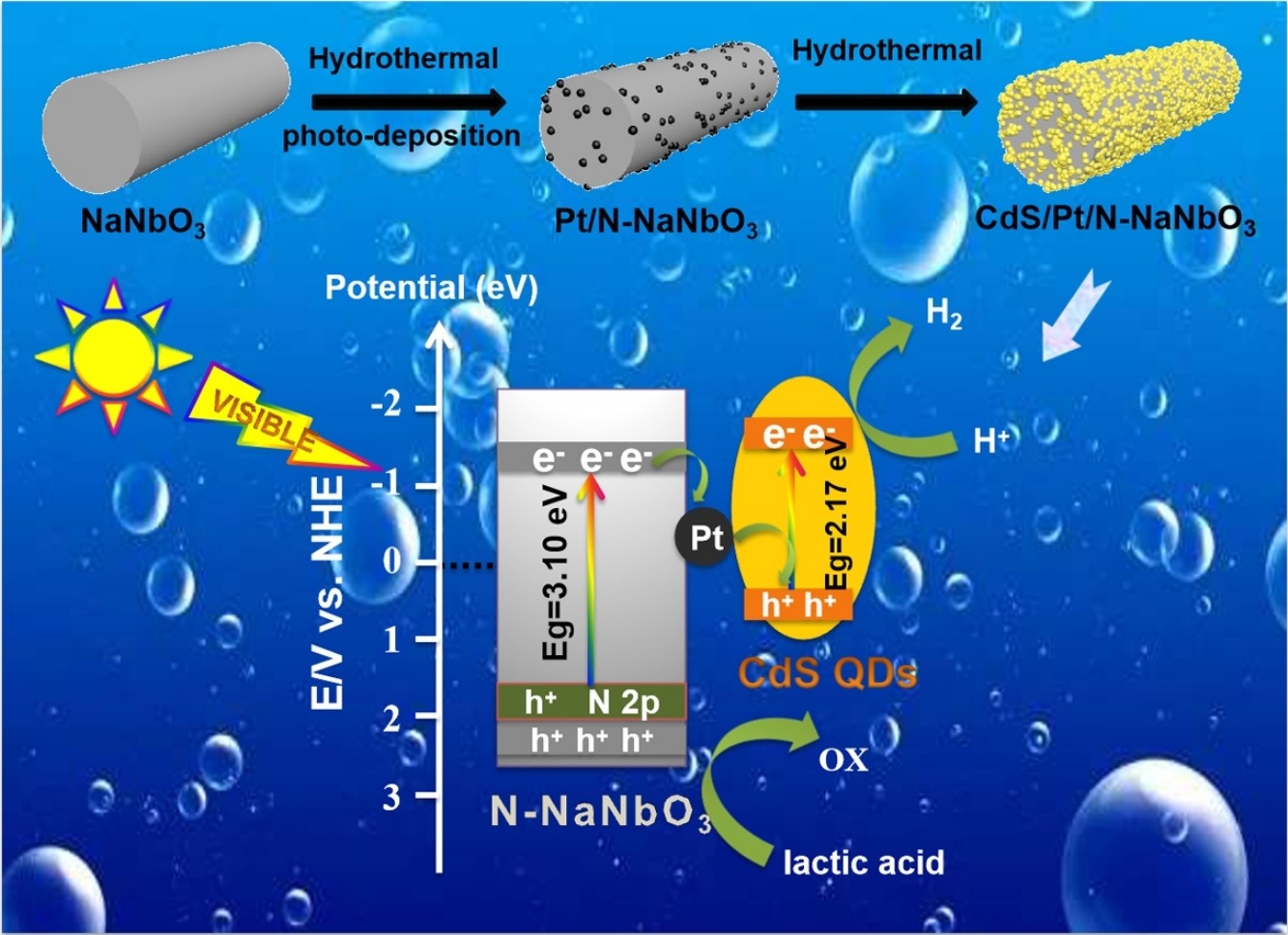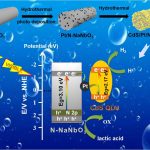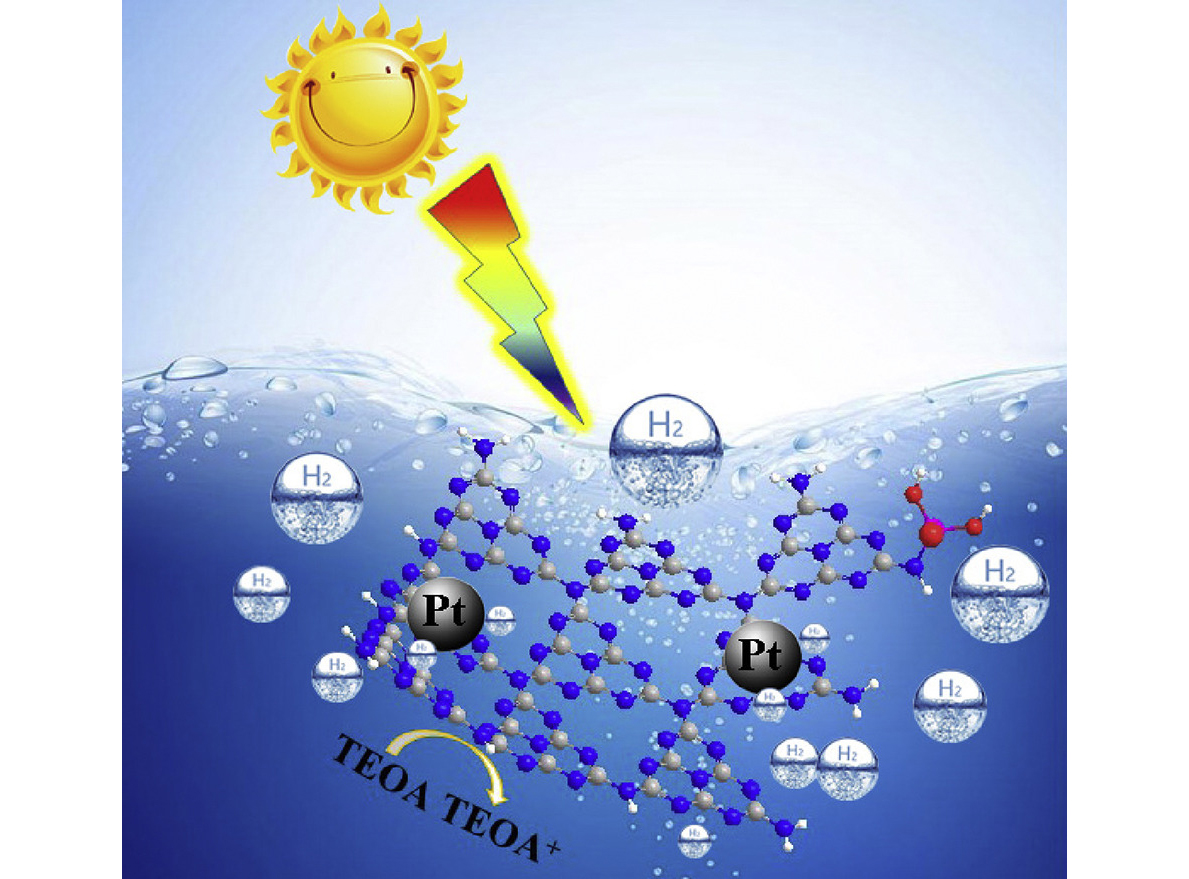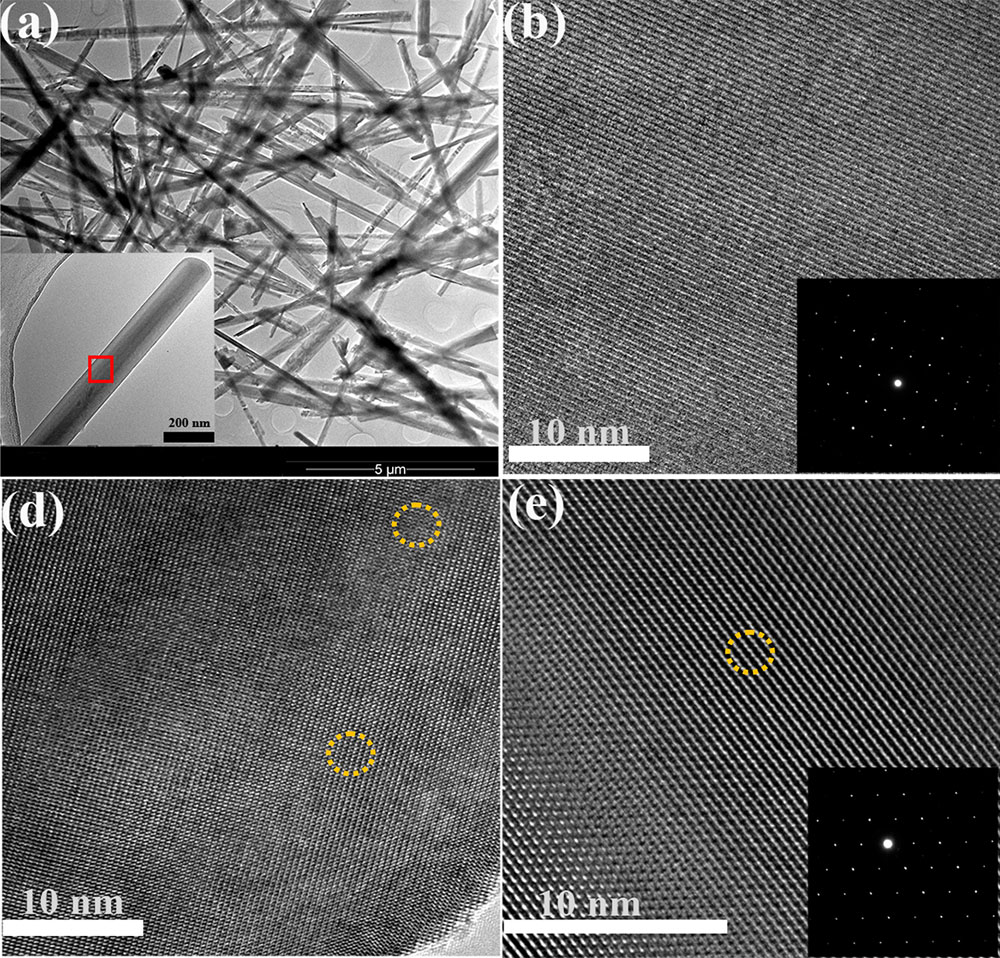The development of heterojunction photocatalysts is still limited by poor interfacial charge carriers separation efficiency. In this work, we have successfully designed CdS/Pt/N-NaNbO3 multilayer bridged nanostructure by embedding of Pt nanoparticles (NPs) into the interface between CdS quantum dots (CdS QDs) and perovskite N-doped NaNbO3. The Pt NPs not only play the role of bonding CdS QDs and NaNbO3, but also provide a motive force for the charge carriers transfer and enormously shorten the migration path. Apart from the efficient Z-scheme charge transmission path of the CdS/Pt/N-NaNbO3 nanorods, strong visible light absorption (400−800 nm) can also be tailored by N doping and introducing of Pt NPs, CdS QDs, demonstrated by the UV–vis. DRS measurement. As expected, the photocatalytic hydrogen evolution rate of 18 %CdS/2%Pt/N-NaNbO3 nanorods is 134 and 28 times higher than that of bare NaNbO3 nanorods and CdS QDs, respectively, under visible light (λ > 420 nm). This is the highest value so far reported among the NaNbO3-based photocatalysts. This study has important implications for photocatalytic hydrogen evolution and novel fabrication of NaNbO3-based materials.
 Wei-Lin Dai Group
Wei-Lin Dai Group


